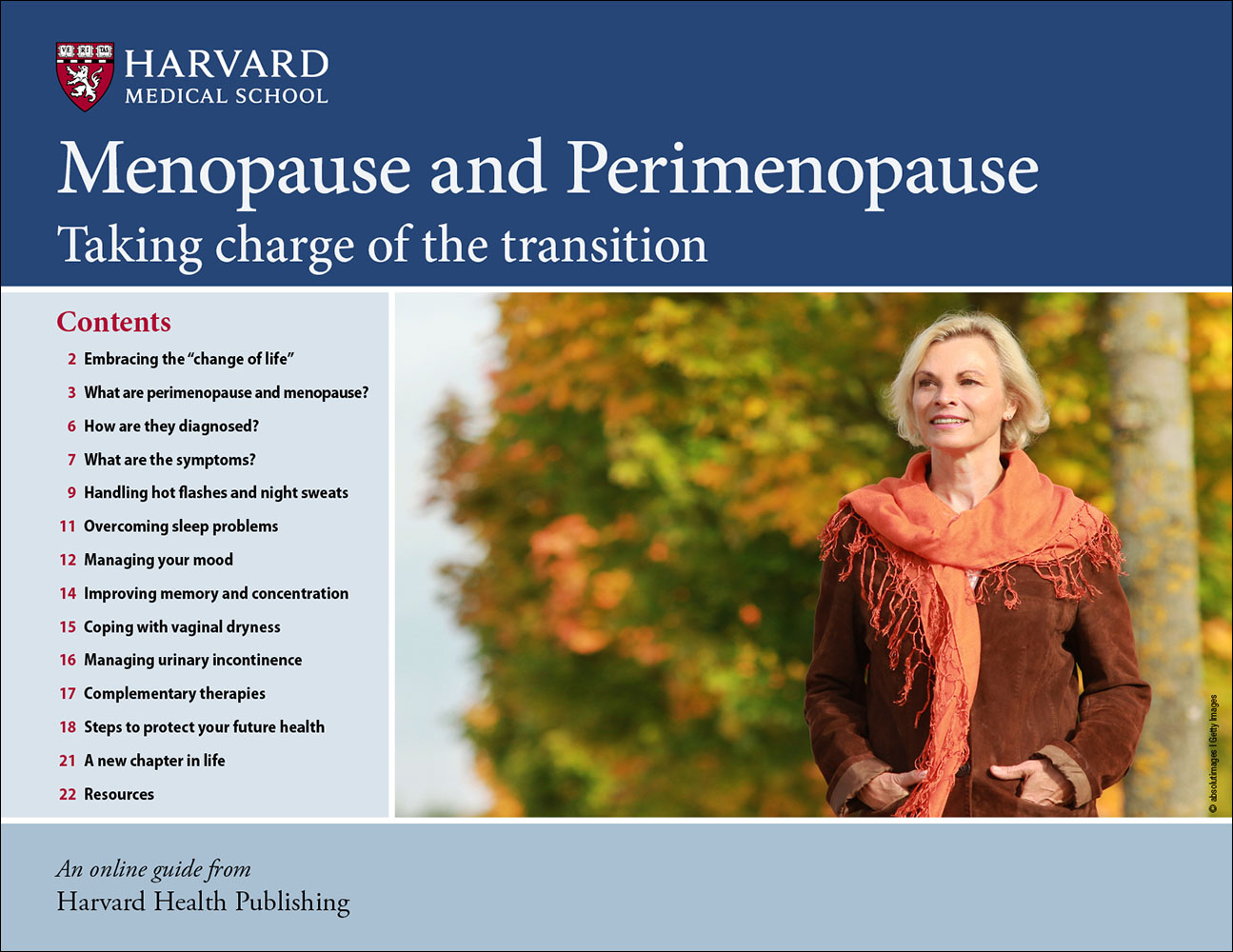Do menopause testing kits work?
Ask the doctor
- Reviewed by Toni Golen, MD, Editor in Chief, Harvard Women's Health Watch; Editorial Advisory Board Member, Harvard Health Publishing; Contributor

Q. I'm in my mid-40s and wondering if I'm in perimenopause. I've seen home menopause testing kits at the drugstore, but are they accurate?
A. A better question is if these over-the-counter tests are useful. They use a urine sample to detect follicle-stimulating hormone (FSH), which is usually high in women who are approaching menopause. Although the test is highly accurate at detecting the hormone, a woman's FSH levels are typically high just before ovulation, too. That means the test can't tell you if you're ovulating — and may want to use birth control to prevent pregnancy — or if menopause is on the horizon. Indeed, both situations can be true simultaneously.
Some menopause test kits account for this conundrum by requiring users to randomly perform a series of tests over a month and record results on an app. But even with repeated testing, the tests can't tell you how close to menopause you are or when any menopause symptoms you're having will ease. If you're wondering if menopause is approaching, a smarter approach is to see your doctor. She may perform FSH testing and explain what your levels mean. More importantly, though, she will speak with you in detail about what you're experiencing, get to know your history, and create a personalized plan that will help you manage any bothersome menopause symptoms.
Image: © Science Photo Library, Steve Gschmeissner/Getty Images
About the Author

Maureen Salamon, Executive Editor, Harvard Women's Health Watch
About the Reviewer

Toni Golen, MD, Editor in Chief, Harvard Women's Health Watch; Editorial Advisory Board Member, Harvard Health Publishing; Contributor
Disclaimer:
As a service to our readers, Harvard Health Publishing provides access to our library of archived content. Please note the date of last review or update on all articles.
No content on this site, regardless of date, should ever be used as a substitute for direct medical advice from your doctor or other qualified clinician.













